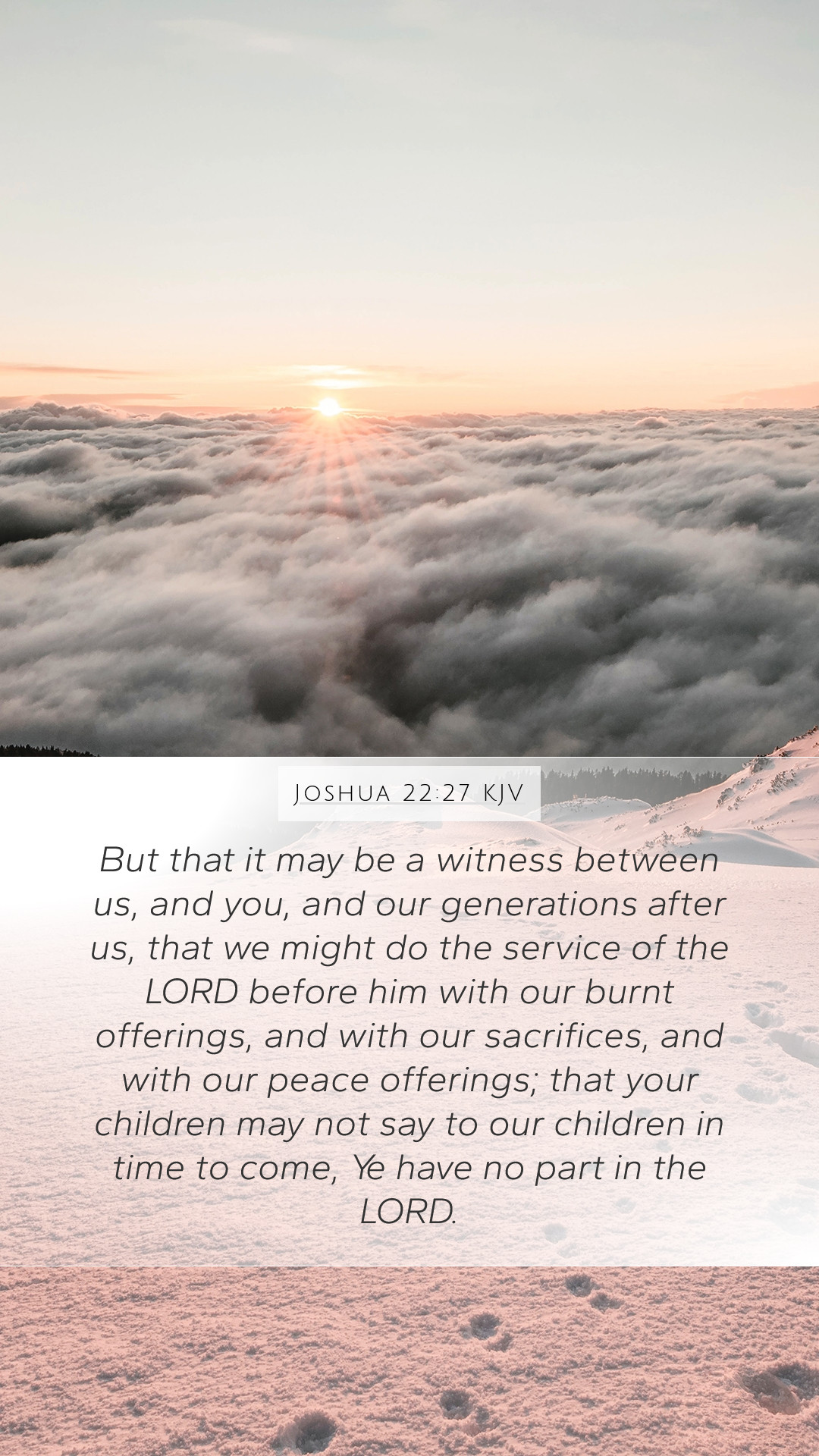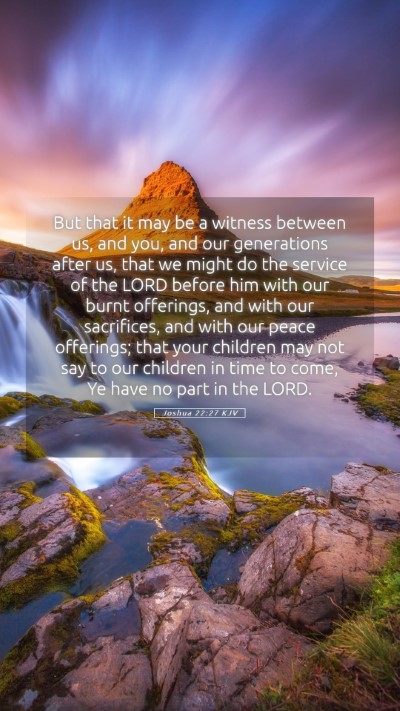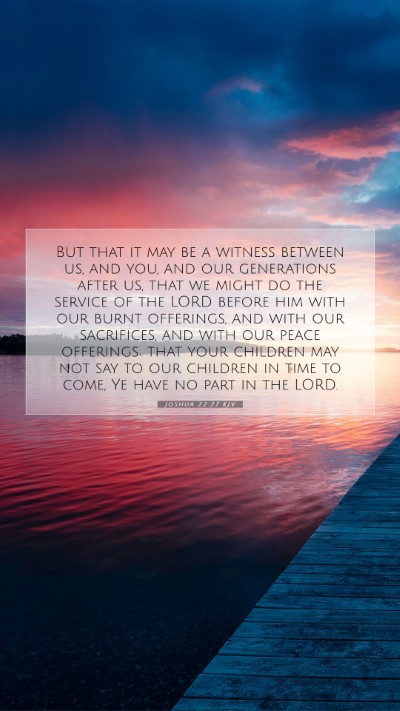Understanding Joshua 22:27
Joshua 22:27 presents a profound statement regarding the significance of the altar built by the Reubenites, Gadites, and half the tribe of Manasseh. The verse reads:
"But that it may be a witness between us and you, and between our generations after us, that we might do the service of the LORD before him with our burnt offerings, and with our sacrifices, and with our peace offerings; that your children may not say to our children in time to come, Ye have no part in the LORD."
Verse Explanation
This passage highlights the compelling need for unity and remembrance within the Israelite community. The building of the altar was intended not as a rival worship site, but as a memorial of their shared heritage and devotion to God.
Key Themes
- Unity in Worship: The altar symbolizes a bond among the tribes and their mutual commitment to serve the LORD.
- Generational Witness: It serves as a testimony for future generations to remember their covenant with God.
- Importance of Remembrance: The construction of the altar was a proactive step to prevent conflict over territorial worship differences.
Bible Verse Meanings from Public Domain Commentaries
Here is a synthesis of insights from renowned public domain commentators:
Matthew Henry's Commentary
Matthew Henry emphasizes that this altar was intended not merely for the tribes' worship but to safeguard the unity of the Israelite nation. He points out its role as a witness to their shared devotion and service, preventing any misconceptions about their faith or belonging.
Albert Barnes' Notes
Albert Barnes notes that the altar's design was a defensive measure against potential misunderstanding and disunity among the tribes. He suggests that the phrase "witness between us" signifies a mutual commitment to one another that transcends physical borders, reinforcing their identity as a singular nation dedicated to God.
Adam Clarke's Commentary
Adam Clarke delves into the significance of sacrifices and offerings mentioned in the verse. He explains that these acts of worship are central to the Israelites’ relationship with God, and the altar revisits the importance of maintaining a communal approach to worship, ensuring that future generations are also included in this divine relationship.
Application of the Verse
The contemporary application of Joshua 22:27 encompasses understanding the importance of unity in faith practices. It encourages modern believers to reflect on their shared beliefs, fostering an environment where future generations can appreciate and partake in worship.
Cross References
- Deuteronomy 12:5-6: Instructions on the centralization of worship.
- Joshua 1:16-18: The commitment to follow God and support one another.
- Matthew 18:20: The promise of Christ's presence where two or three gather in His name.
Conclusion
Joshua 22:27 serves as a valuable lesson on the essence of community and shared faith in God. Through the lens of various Bible verse interpretations, we uncover layers of meaning that reveal the importance of unity and remembrance across generations. This understanding enriches our Bible study insights and facilitates deeper engagement with Scripture.


